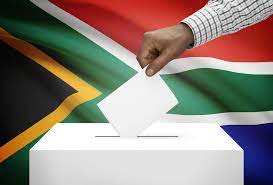Voting commenced in South Africa’s eagerly awaited municipal elections on Monday, with millions of eligible voters expected to cast their ballots at over 23,100 polling stations dotted across the country.
Polling stations opened at 7am (0500 GMT) to allow over 26.2 million registered voters to choose councillors and mayors for the country’s 257 municipalities.
According to the Independent Electoral Commission (IEC), a record 325 parties have registered to contest for the 10,478 seats available, but only two have fielded candidates in all the areas to be contested.
However, the main contest is among the top three political parties – the ruling African National Congress (ANC), largest opposition party, Democratic Alliance (DA), and the militant opposition Economic Freedom Fighters (EFF).
In the last municipal elections held in 2016, the ANC garnered 54 percent of the total vote against 26.9 percent for the DA and 10 percent for EFF.
President Cyril Ramaphosa was expected to cast his vote in his home township Chiawelo in Soweto, scene of violent service delivery protests last week.
Local government in South Africa consists of municipalities of various types – eight metropolitan municipalities, 44 district municipalities, each of which consists of several local municipalities.
Councils of metropolitan and local municipalities are elected through a system of mixed-member proportional representation, in which half of the seats in each municipality are elected on the first-past-the-post system in single-member wards.
The other half of the seats are allocated according to the proportional representation system.
JN/APA


